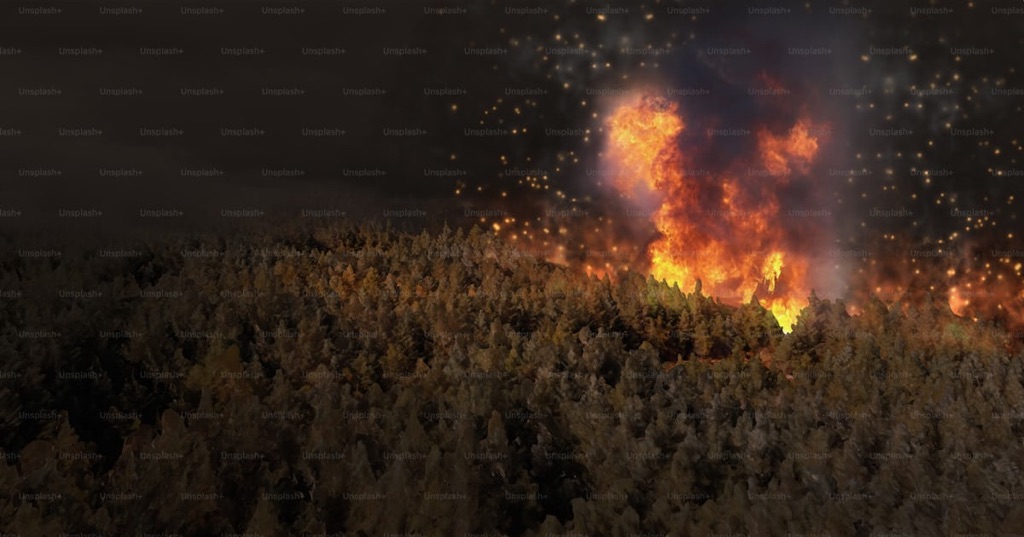Scorched: A Pentecost I’m Not Ready For
Acts 2:1-11
Pentecost is often pitched as a celebration—the birthday of the Church, the grand arrival of the Holy Spirit with wind and fire and a sudden outbreak of linguistic diversity. A miracle, a launch, a holy spectacle. But this year, the only fire that matters to me is on the map of northern Saskatchewan. Flames are raging through hundreds of thousands of hectares of forest, where my childhood lives in trees and trails and lakes I know by heart.
I’ve always loved fire. Fire is comfort. Campfires, candles, the warm orange glow that pulls people close. Fire is motivation and energy and, if you grew up in the Church, it’s God’s presence too—burning bushes, pillars of flame, tongues of fire landing neatly on the disciples’ heads.
But right now, fire means ash-filled skies. Evacuation orders. Closed highways. Familiar places in unfamiliar headlines. The landscapes of my adolescence and young adulthood? Gone. The lakes I named my kids after? Consumed. My childhood home? Still standing – for now – but as of this moment, threatened on three sides. By the time someone reads this, it may well be gone too.
And so, Pentecost arrives this year, all dramatic and loud, and I find myself strangely resistant. I don’t want to hear about tongues of flame descending from heaven. I don’t want metaphors. I don’t want birthday cake for the Church.
I want the fires to stop.
And yet, if we’re honest about it, Pentecost was never really about tidy celebration. If you strip away the stained glass and the children’s sermons, what you get in Acts 2 is a bunch of scared, confused people hiding in a room because their world fell apart. Jesus is gone. They’re waiting, but they don’t know what for. They aren’t strategizing church growth. They’re rattled. Uncertain. Likely tired of trying to “discern.”
And then – yes – fire.
But this fire doesn’t consume. It rests. It doesn’t destroy their house or their histories. It disrupts, sure, but it also clarifies. It gives the disciples something they didn’t have before: the courage (or just enough discomfort) to step outside and say something.
I don’t feel on fire right now. I feel like I’m watching everything that gave me a sense of rootedness go up in smoke. The Spirit may have shown up at Pentecost with power and purpose, but this fire I’m watching is neither. It’s just devastation.
Still, I wonder—what if this is where vocation begins too?
Not in the clean moment of inspiration, but in the gritty, painful middle of loss. Not when you’re ready to be sent, but when there’s nowhere familiar left to stay.
Because the thing about Pentecost is that it didn’t fix anything. The disciples still lived under occupation. They still faced opposition, uncertainty, and grief. But somehow, they began to speak. And people heard them. Not in some vague universal language, but in their own mother tongues – in the raw, specific vocabulary of their lives.
I’m not ready to find beauty in this fire. I know regrowth will come, but I don’t want to rush past the ash. I don’t want to package it neatly. I want to mourn what’s been lost, even as I hold space – begrudgingly – for what might still be born.
Perhaps vocation is less about being lit up and more about living faithfully in the smouldering middle. Maybe it’s letting the fire undo your certainty, without letting it undo your love.
This Pentecost, I don’t welcome these flames. There’s no clarity. I don’t know what they’re pushing me toward, or what will be waiting on the other side. I’m grieving. I’m frightened. And I’m being compelled—pulled out of the safe spaces I thought I knew, into something uncertain and raw. I sit with smoke in my lungs and a prayer stuck in my throat. I don’t feel inspired. I just feel… scorched.
Maybe that’s where vocation begins – not in the blaze of certainty, but in this vulnerable, smouldering middle where nothing is clear, but everything still matters.
I don’t feel the Spirit as a flame upon my head. But I trust She’s near, hovering just beyond sight, moving with the wind through the ashes—waiting for the moment to whisper, “You’re still called. This isn’t done. I’m not done. Neither are you.”
By Darcie Lich


